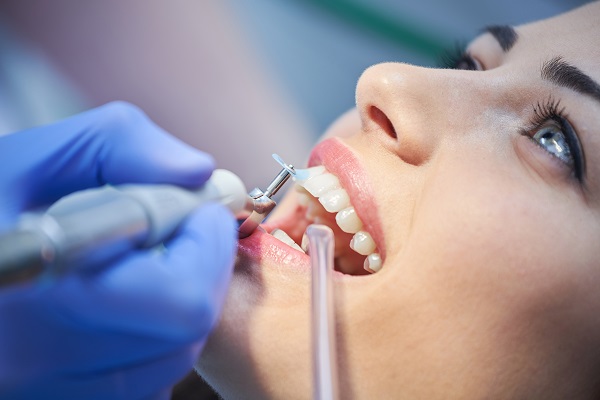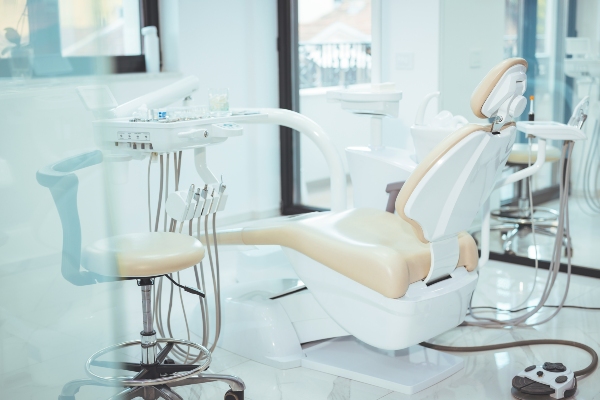What Happens During Your Exam and Dental Teeth Cleaning

Teeth cleaning is not something everyone is excited about. Most people find the noises, prodding, and discomfort unnecessary for dental health. That is why it is easy for them to cancel dental appointments. The dentist will clean your teeth during your dental exam. If you want to know what to expect during a dental exam and teeth cleaning, here are the details.
Physical exam
The dentist will start by inspecting the mouth. A small mirror will guide the dentist around the gums and teeth. This will help spot signs of gingivitis and other dental issues. The dentist will point out the problem areas to the patient before teeth cleaning starts.
Diagnosis
The dentist will ask the patient about tooth sensitivity and pain while inspecting the mouth. Using a probe to look for soft areas can determine the spots for infection. The dentist can also order X-rays to see the extent of decay and infection. After the inspection, the dentist will inform the patient if there are root, surface, pit, or fissure cavities.
Plaque and tartar removal
A small, handheld mirror will guide the dentist while using a scaler to remove sticky plaque and hardened tartar along the gumline and between the teeth. Scraping sounds are normal. The dentist will take more time removing tartar in one particular spot. This could happen if there is a large deposit of tartar on one tooth.
Cleaning with gritty toothpaste
The dentist will use a turbo-powered electric toothbrush and gritty toothpaste to clean the patient’s teeth. The process will involve a loud grinding sound. It may seem intimidating, but this is an efficient way to remove the remaining plaque and tartar from the scaling treatment earlier. The gritty toothpaste tastes and feels like normal toothpaste. The patient could even choose the flavor of gritty toothpaste.
Professional flossing
Flossing happens once daily, but the efficiency depends on the person’s skills. The dentist will provide the patient with professional flossing. The dentist can go deep into the patient’s mouth and see any trouble spots. These areas often cause gum bleeding. The dentist can remove leftover plaque and toothpaste from the dental brushing earlier.
Thorough rinsing
The patient will rinse out the mouth of any dislodged debris as part of teeth cleaning. Doing this a few times will leave the tooth spotless. The dentist will ask the patient to rinse with liquid fluoride as well. This will leave the mouth with a thin coating of protection around the mouth and gums.
Fluoride treatment
This is the final step of the dental exam and teeth cleaning. The dentist will apply a protectant. This will shield the teeth against cavity formation for months. The patient could choose the flavor of the fluoride paste or gel.
The dentist will place the fluoride gel or paste in a dental tray. Biting into it will allow the fluoride to stay on the teeth for one minute. Painting the fluoride onto the teeth is another way of applying it to teeth. The fluoride will harden once it touches the saliva. The patient will be able to eat or drink right after the treatment.
Possible dental restorations
The dentist may recommend some dental treatments after the dental inspection. Filling cavities may come right away. The dentist must perform this treatment to prevent the cavities from worsening. Tooth extraction may happen if the dentist cannot repair at least one tooth anymore. The dentist will remove the decaying teeth. Doing so will prevent the spread of infection.
The dentist can recommend root canal treatment when the dental damage has reached the pulp. This procedure aims to keep the dental structure intact. The dentist will clean out the infected tooth and disinfect the inner chamber. Filling it with gutta-percha will come next. Protecting the tooth with a custom-fit crown can prevent future damage and infection.
Sometimes, the dentist may recommend a dental crown to support teeth with large fillings. These teeth have little healthy dental structure left. A crown can cover the exposed part. The dentist will cement the crown and dry it with a curing light. This will keep the tooth intact for a long time.
Having regular professional teeth cleaning sessions can elevate your dental health
Seeing your dentist for regular dental exams and teeth cleanings can improve your oral health. Personal oral care could only go so far. You need your dentists to remove tartar and excess food particles. A teeth cleaning session is not painless at all. Starting regular dental cleanings can prevent many dental issues, including tooth loss.
Are you considering having teeth cleaning in the Columbia area? Get more information at https://davisanddingle.com.
Check out what others are saying about our dental services on Yelp: Dental Cleaning and Examinations in Columbia, SC.
Recent Posts
Dental cleaning is a huge part of routine check-ups. The procedure involves using a scaler to scrape off tartar and plaque deposits from teeth surfaces. Plaque is the sticky film that builds up on teeth, and it hardens into tartar when left on teeth surfaces for a few days. Both make you more vulnerable to…
Your teeth need a professional dental cleaning. Flossing and brushing daily is always helpful in removing food particles and bacteria. Apart from daily oral care, you should see your dentist to make sure that your teeth are free of plaque and dental calculus. If you want to prepare for your next dental checkup and cleaning,…
Stay healthy by keeping up regular dental cleanings and examinations at our office.Brushing and flossing your teeth is not the only way to help keep your teeth healthy. No matter how much people brush and floss, there are areas of the mouth that only a professional dentist can reach. This is where we come in.With…
There are many reasons you should have a dental checkup, but it is not uncommon to have a fear of the dentist. The gums, teeth, and tongue all play a significant role in helping you have a nutritious diet. When these do not work well, you may not be able to eat the right foods.…


